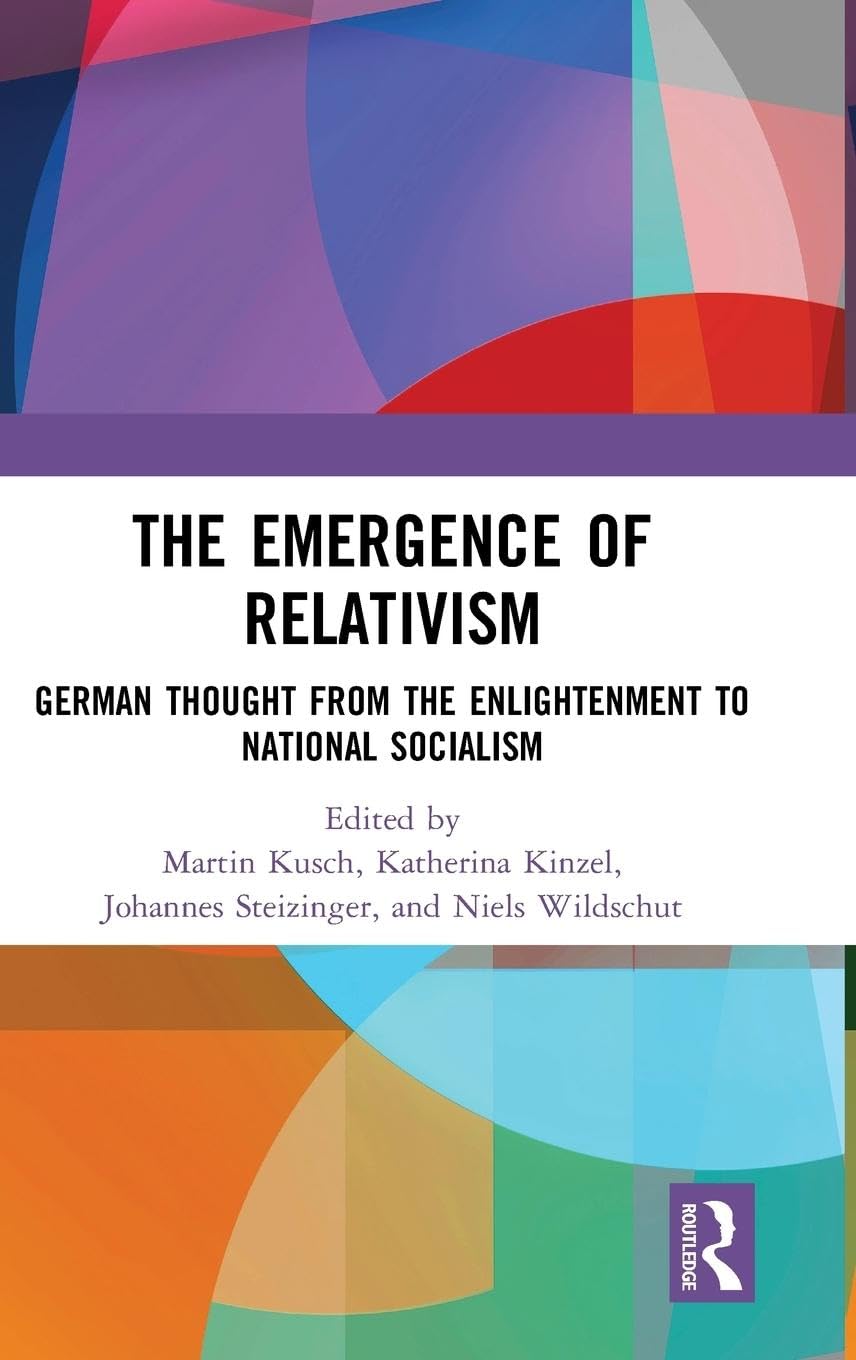The Emergence of Relativism: German Thoughtg from the Enlightenment to National Socialism: German Thought from the Enlightenment to National Socialism
The Emergence of Relativism: German Thoughtg from the Enlightenment to National Socialism: German Thought from the Enlightenment to National Socialism is backordered and will ship as soon as it is back in stock.
Couldn't load pickup availability
Genuine Products Guarantee
Genuine Products Guarantee
We guarantee 100% genuine products, and if proven otherwise, we will compensate you with 10 times the product's cost.
Delivery and Shipping
Delivery and Shipping
Products are generally ready for dispatch within 1 day and typically reach you in 3 to 5 days.
Book Details
-
Author: Martin Kusch
-
Brand: Routledge
-
Edition: 1
-
Binding: Hardcover
-
ISBN: 9781138571877
-
Number of Pages: 268
-
Release Date: 28-02-2019
-
Languages: English
-
Package Dimensions: 9.5 x 6.3 x 0.9 inches
About the Book
"The Emergence of Relativism" by Martin Kusch is a thought-provoking exploration of the history and evolution of relativist thought in the modern era, focusing on its roots in the German intellectual tradition. Relativism, a concept deeply intertwined with debates in philosophy, science, and social sciences, has long been a controversial topic. In this work, Kusch delves into the complex history of relativism, tracing its emergence and development from the Enlightenment through to the period of National Socialism, specifically within the context of German intellectual history during the "long nineteenth century."
This collection meticulously examines relativist and anti-relativist arguments in four significant contexts: history, science, epistemology, and politics. Kusch's interdisciplinary approach provides a unique perspective, highlighting the philosophical, scientific, and political dimensions that shaped the rise of relativism and its counterarguments.
The book is ideal for readers interested in nineteenth- and twentieth-century philosophy, particularly German idealism, and those exploring the history and philosophy of science. It will also appeal to students and scholars in related disciplines such as sociology and anthropology, offering valuable insights into the intellectual foundations of modern relativist thought.
This work stands as an essential resource for anyone wishing to understand the intricate relationship between relativism, the intellectual currents of the past, and their lasting influence on contemporary debates.





